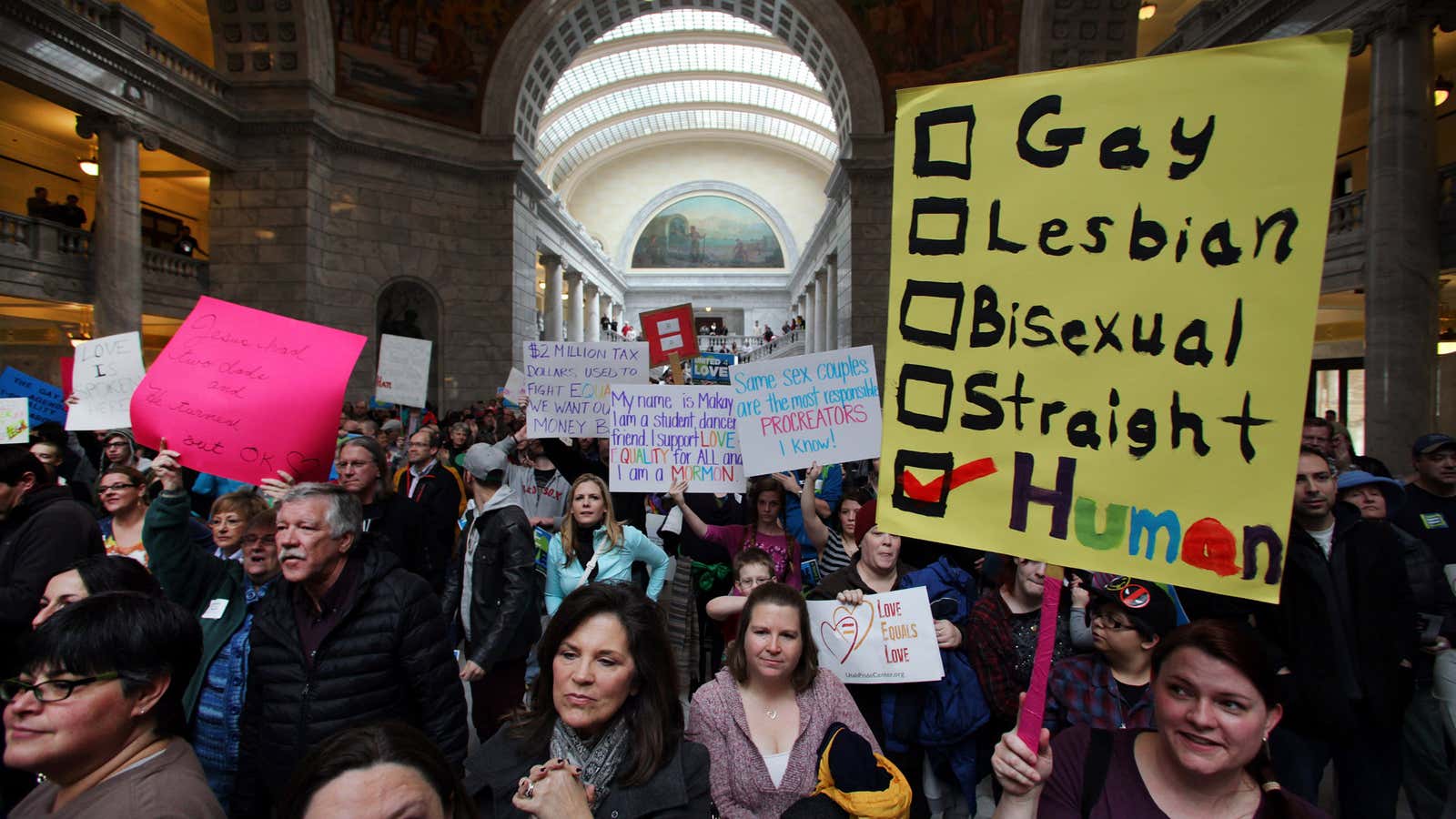Freedom of religion is a hard-won principle. In Europe, the wars of religion raged for over a century before the Peace of Westphalia solidified freedom of religion for rulers in 1648. Freedom of religion for ordinary citizens was much slower in coming: the Bill of Rights to the US Constitution was a huge advance in that sphere.Then it took the US Civil War for the principle to be firmly established in the 14th amendment that the key provisions of the Bill of Rights apply to state laws as well: “nor shall any State deprive any person of life, liberty, or property, without due process of law.”
The reason so much blood was shed before the principle of religious freedom was established is that it’s not a principle that comes naturally to the human mind. If a behavior or belief deeply offends God or the gods, then it doesn’t seem right to tolerate it. And if a behavior or belief will bring eternal damnation down on the heads of those involved (and those they might influence), then doesn’t the solicitous kindness of tough love demand doing whatever it takes to pull them away from that behavior or belief?
Within the United States, ground zero in the battle for freedom of religion is in Utah, where US District Court Judge Richard Shelby Federal judge ruled on Dec. 20, 2013 that Utah could not prohibit gay marriage. Utah is appealing, in a move that could put the case on a fast-track to the Supreme Court.
Gay marriage is a matter of religious freedom for two reasons: First, a substantial component of the opposition to legalizing gay marriage is religious in origin. This is particularly true in Utah, where the Mormon Church has taken a lead role in opposing gay marriage. Leave aside religious objections to gay marriage and what remains would be unlikely to garner much respect. As Judge Shelby reminded us in his opinion, “the regulation of constitutionally protected decisions, such as … whom [a person] shall marry, must be predicated on legitimate state concerns other than disagreement with the choice the individual has made.” It is easy to come up with religious concerns about gay marriage; not so easy to come up with “legitimate state concerns.”
What’s not said as often is that gay marriage is itself an exercise of religious freedom. As many with good marriages know from experience, marriage is one of the most powerful paths toward spiritual growth. A good spouse helps one to see the aspects of oneself that one is too blind to see, and inspires efforts to be a better person. And when two human beings know each other so well, and interact so thickly, the family they create is something new and wonderful in the world, even when there are no children in the picture. And for those who do choose to have children, but cannot bear their own biologically, adoption is a tried and true path.
To those who would dispute that the freedom to marry the one person you love above all others is a matter of religious freedom, let me argue that if I am wrong that this is a matter of religious freedom, it is a freedom that should be treated in the same way. In his influential book A Theory of Justice (p. 220), John Rawls made this argument:
“This idea that arose historically with religious toleration can be extended to other instances. Thus we can suppose that the persons in the original position know that they have moral convictions although, as the veil of ignorance requires, they do not know what these convictions are. … the principles of justice can adjudicate between opposing moralities just as they regulate the claims of rival religions.”
Rawls’s point is that when something touches on a fundamental liberty—as the choice of whom to marry certainly does—people gain so much from that freedom they would not sell that freedom for anything. Imagine a time before you knew whether you would be gay or not—for many a time within actual childhood memory. Would you trade away the right to marry whom you choose for the right to prevent others from marrying whom they choose? No! Almost none of us would.
At the founding of our nation, we the people struck a bargain to live and let live in matters of religion. That freedom includes the freedom to believe that God frowns on gay marriage. But it does not include the freedom to impose one’s own view of God’s law as the law of the land—unless one can make a compelling argument that speaks to people of the whole range of different religious beliefs—or as John Rawls expresses it, “by reference to a common knowledge and understanding.” I know that my own religious beliefs make legalizing gay marriage an important part of the path toward God ([1,] [2,] [3]). In our republic, the way to arbitrate between warring religious beliefs is to privilege freedom.
I am always moved when I read stories of happy gay couples after legalization of gay marriage in one more state. I wish everyone could feel that way. But that is not the world we live in. For some, allowing a man to marry a man or a woman to marry a woman comes hard. But I ask them to do so in order to maintain the principles that guarantee their own freedom in matters close to their hearts.
